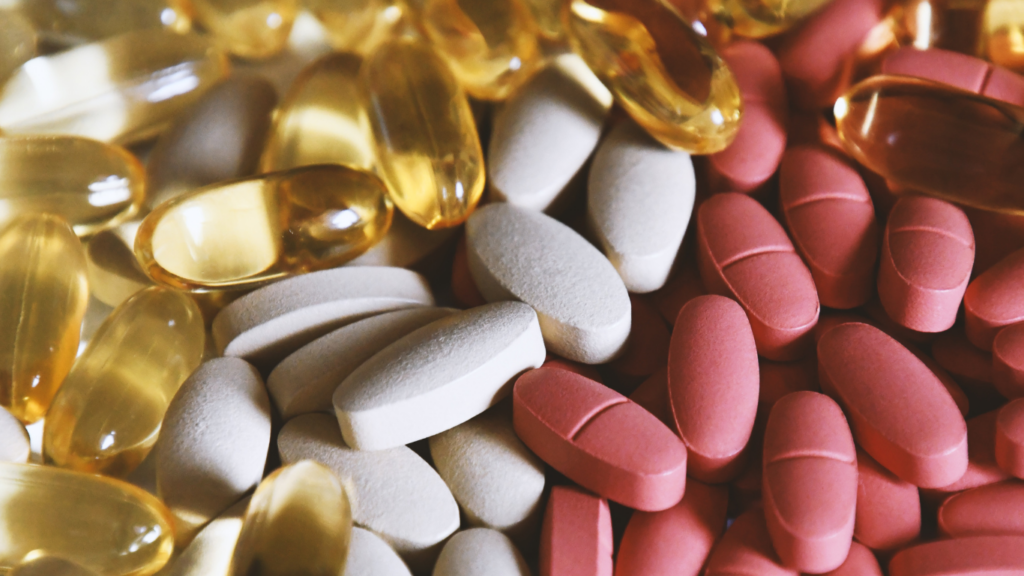As someone who’s passionate about health and wellness, I’ve always been fascinated by the impact of nutrition on our bodies, especially when it comes to injury prevention and recovery. Proper nutrition plays a crucial role in not only keeping our bodies strong and resilient but also in helping them heal faster when injuries occur.
In this article, I’ll delve into the significance of nutrition in the context of injury prevention and recovery, shedding light on the key nutrients and dietary strategies that can make a real difference in our overall well-being. From supporting tissue repair to reducing inflammation, the right balance of nutrients can make a world of difference in how our bodies respond to injuries.
By understanding the role of specific vitamins, minerals, and macronutrients, we can empower ourselves to take proactive steps towards preventing injuries and promoting faster recovery times. Join me as we explore the fascinating connection between nutrition and our body’s ability to bounce back from setbacks stronger than before.
Understanding the Importance of Nutrition in Injury Prevention and Recovery
Ensuring proper nutrition plays a vital role in both preventing injuries and facilitating recovery. As an athlete, I know firsthand how essential it is to fuel my body with the right nutrients to maintain overall health and support injury healing processes.
By incorporating specific vitamins, minerals, and macronutrients into my diet, I’ve witnessed the positive impact of nutrition on tissue repair and inflammation reduction. Injury prevention starts from within, and one of the key factors in maintaining a strong and resilient body is through optimal nutrition.
When I focus on consuming a well-balanced diet rich in essential nutrients, I not only boost my immune system but also fortify my muscles and bones. This proactive approach to nutrition forms a solid foundation for injury prevention, as it enhances my body’s ability to withstand physical stress and recover faster from any potential injuries.
Moreover, during the recovery phase post-injury, nutrition plays a critical role in the healing process. By providing my body with the necessary building blocks, such as protein for muscle repair and antioxidants for reducing oxidative stress, I accelerate my recovery journey.
The right balance of nutrients aids in rebuilding damaged tissues, restoring strength, and promoting overall wellness. In essence, understanding the significance of nutrition in injury prevention and recovery empowers me to take control of my well-being.
Through mindful dietary choices and a focus on essential nutrients, I not only enhance my body’s resilience but also pave the way for a speedier and more effective recovery from injuries.
Nutrients Essential for Injury Prevention and Recovery
- Protein Intake: Adequate protein consumption is essential for muscle repair and recovery, as it provides the building blocks needed to rebuild damaged tissues and support overall muscle health. Ensuring a sufficient intake of high-quality protein can enhance the healing process and reduce recovery time.
-
Vitamin C and Zinc: Both vitamin C and zinc are critical for collagen synthesis, which is vital for tissue repair and immune function. Vitamin C supports the production of collagen, while zinc aids in cell growth and immune response, contributing to effective recovery and reduced risk of prolonged injury.
Protein Intake for Muscle Repair
Protein is a fundamental component essential for muscle repair and growth. It provides the necessary amino acids that aid in rebuilding damaged tissues after injury. As an athlete, I understand the significance of adequate protein intake in my diet to facilitate muscle recovery.
Ensuring a sufficient amount of protein helps optimize the repair process, enabling the body to bounce back stronger post-injury.
Vitamin C and Zinc for Collagen Synthesis
Vitamin C and zinc play vital roles in collagen synthesis, a process crucial for tissue repair and wound healing. Vitamin C is essential for collagen production, which is necessary for maintaining the structural integrity of connective tissues such as tendons and ligaments.
Zinc, on the other hand, contributes to collagen formation and supports the immune system during the recovery phase. Including foods rich in vitamin C and zinc in my diet has been integral to my injury prevention and recovery journey, allowing me to support tissue repair effectively.
By understanding the significance of these nutrients and incorporating them into a well-balanced diet, individuals can proactively maintain their physical health and enhance their body’s resilience to injuries.
Hydration and Its Impact on Injury Prevention
Hydration plays a vital role in injury prevention and recovery. Adequate fluid intake is essential for maintaining overall health and supporting the body’s ability to heal and repair.
As an athlete, I know firsthand the importance of staying properly hydrated to prevent injuries. Dehydration can lead to muscle cramps, fatigue, and decreased cognitive function, which may increase the risk of accidents during physical activity.
To avoid dehydration, I ensure that I drink enough water throughout the day, especially before, during, and after workouts. Proper hydration helps transport essential nutrients to cells, regulate body temperature, and lubricate joints, reducing the likelihood of strains and sprains.
Key Nutritional Strategies for Enhanced Recovery
Exploring key nutritional strategies that can significantly enhance recovery is crucial for optimizing the body’s healing processes and reducing downtime after an injury. As an athlete familiar with the impact of nutrition on recovery, I have found that incorporating specific nutrients into my diet has played a fundamental role in expediting my healing journey.
1. Protein Intake for Muscle Repair
Focusing on adequate protein intake is essential for promoting muscle repair and regeneration during the recovery phase after an injury. Protein serves as the building block for tissues, aiding in the repair of damaged muscle fibers.
By including high-quality protein sources such as lean meats, poultry, fish, dairy, legumes, and nuts in my diet, I’ve witnessed accelerated recovery times and improved muscle strength.
2. Vitamin C and Zinc for Collagen Synthesis
Integrating vitamin C and zinc into your diet can enhance collagen synthesis, a crucial process for maintaining the integrity of connective tissues such as tendons and ligaments. Vitamin C is essential for collagen production, while zinc supports collagen formation and plays a vital role in immune function.
By incorporating foods rich in vitamin C like citrus fruits, berries, and bell peppers, along with zinc sources such as seafood, nuts, and seeds, you can support tissue repair and strengthen your body’s defense mechanisms.
3. Hydration for Optimal Recovery
Maintaining proper hydration levels is paramount for supporting the body’s recovery process and preventing injuries. Adequate fluid intake ensures the efficient transport of nutrients to cells, regulates body temperature, and lubricates joints, reducing the risk of strains and sprains.
As an athlete, staying hydrated has been a cornerstone of my recovery routine, enabling me to boost my performance and minimize the likelihood of dehydration-related complications. By implementing these key nutritional strategies into your daily routine, you can proactively enhance your recovery potential, promote tissue repair, and fortify your body against future injuries.
Prioritizing nutrient-dense foods and adequate hydration not only accelerates healing but also contributes to overall well-being and resilience in the face of physical challenges.


 Dawnny Armstrongster, the visionary founder of Toe Back Fitness, is a passionate advocate for health and wellness, driven by a mission to empower individuals to lead active, balanced lives. With a deep understanding of fitness and injury prevention, Armstrongster has cultivated a platform that merges expert insights with practical advice, making fitness accessible to people at all levels. Her commitment to promoting sustainable lifestyle habits and safe workout practices reflects her dedication to long-term well-being. Under her leadership, Toe Back Fitness has become a trusted resource for those seeking to enhance their physical health, choose the right gear, and build routines that align with their fitness goals.
Dawnny Armstrongster, the visionary founder of Toe Back Fitness, is a passionate advocate for health and wellness, driven by a mission to empower individuals to lead active, balanced lives. With a deep understanding of fitness and injury prevention, Armstrongster has cultivated a platform that merges expert insights with practical advice, making fitness accessible to people at all levels. Her commitment to promoting sustainable lifestyle habits and safe workout practices reflects her dedication to long-term well-being. Under her leadership, Toe Back Fitness has become a trusted resource for those seeking to enhance their physical health, choose the right gear, and build routines that align with their fitness goals.